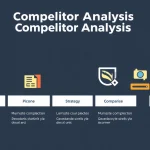Understanding AI Sales Agents
In the rapidly evolving landscape of sales, businesses continually seek innovative solutions to enhance their productivity and effectiveness. One such innovation is the rise of AI sales agents. These intelligent systems are transforming traditional sales processes by automating tasks, enabling data-driven decision-making, and streamlining customer interactions. By leveraging technology, organizations can not only improve their sales efficiencies but also enhance the customer experience significantly.
AI sales agents perform a variety of functions that can elevate a sales team’s output. From managing lead generation workflows to providing customer support and engagement, AI sales agents are proving to be a valuable addition to businesses of all sizes. This article delves into the key components, advantages, and implementation strategies of AI sales agents, setting the foundation for understanding how they can be utilized effectively in modern sales strategies.
What are AI Sales Agents?
AI Sales Agents, often referred to as AI SDRs (Sales Development Representatives), are autonomous applications or systems designed to handle various sales processes with minimal human intervention. Their capabilities include finding leads, researching prospects, sending personalized outreach emails, managing sales meetings, and following up on leads. This automation allows human sales representatives to focus on higher-level strategic tasks, such as closing deals and building client relationships.
Traditionally, the sales cycle is labor-intensive, requiring significant time spent on lead generation, nurturing, and conversion. AI sales agents help mitigate this issue by enhancing efficiency and reducing the monotonous tasks that often consume sales reps’ time. For instance, platforms like Ava, the AI SDR, are designed to automate B2B outbound sales processes, relieving teams from time-consuming tasks and allowing them to concentrate on strategic conversations and closing sales.
The Technology Behind AI Sales Agents
At the core of AI sales agents lies advanced technologies such as machine learning (ML), natural language processing (NLP), and automation tools. These technologies work together to enable AI sales agents to analyze large datasets, understand customer inquiries, and generate insights that inform sales strategies.
- Machine Learning: By analyzing historical sales data, AI agents can identify trends and predict future customer behavior, allowing for more targeted sales strategies.
- Natural Language Processing: This technology allows AI sales agents to understand and respond to customer inquiries in a conversational manner, making interactions feel more personalized and human-like.
- Automation Tools: By automating repetitive tasks, such as email follow-ups and scheduling meetings, AI sales agents save valuable time for sales teams.
Benefits of Using AI Sales Agents
The adoption of AI sales agents offers numerous benefits that can enhance the overall performance of sales teams:
- Increased Efficiency: Automating routine tasks enables sales teams to allocate their time to high-value activities that require human intervention, such as nurturing relationships and closing deals.
- Improved Lead Generation: AI sales agents can quickly analyze data and identify potential leads that match a company’s target demographics, enhancing the quality of leads generated.
- Enhanced Customer Experience: With real-time insights and quick responses, AI agents improve customer interactions, leading to higher satisfaction, engagement, and retention.
- Data-Driven Decisions: By leveraging analytics and reporting capabilities, sales teams can make informed decisions based on data, rather than relying solely on intuition.
Implementing AI Sales Agents in Your Business
Implementing AI sales agents can be a game-changer for businesses looking to optimize their sales processes. However, navigating the implementation journey requires careful planning and execution. Below are key considerations and strategies to adopt.
Choosing the Right AI Sales Agent
Selecting the most suitable AI sales agent for your specific business needs is crucial. Several factors should be considered during this process:
- Feature Set: Identify the functionalities you require. Some AI sales agents may specialize in lead generation, while others may focus on customer relationship management.
- Integration Capabilities: Ensure that the AI agent can seamlessly integrate with your existing sales tools, CRM systems, and other business applications.
- Scalability: Choose a solution that can grow with your business needs, adapting to changes in sales strategies and volumes.
- Usability: The chosen AI sales agent should be user-friendly, ensuring that your team can efficiently adopt and use the technology without extensive training.
Integrating AI Sales Agents with Existing Systems
After selecting the right AI sales agent, the next step involves integration into your current sales processes and systems. This step may involve:
- Connecting CRM Systems: Many AI agents can connect with existing customer relationship management systems to ensure a seamless workflow for managing customer data.
- Data Migration: Transitioning existing data to the new AI platform is critical. Ensure that the data quality is high and that it complies with privacy and security regulations.
- Training & Support: Providing adequate training and support for sales teams will facilitate a smoother adoption process, ensuring that team members are well-equipped to leverage the new technology.
Best Practices for Deployment
When deploying AI sales agents, adhering to best practices can maximize their effectiveness:
- Start Small: Consider piloting the AI agent with a small segment of your sales team or a specific sales process before a company-wide rollout.
- Monitor Performance: Continuously assess the AI agent’s performance using key performance indicators (KPIs) such as lead conversion rates and sales cycle duration.
- Solicit Feedback: Encourage user feedback to identify any areas for improvement or additional needs that your sales team may have.
- Regular Updates: Ensure that your AI sales agent is regularly updated to align with the latest technology advancements and feature enhancements.
Key Features to Look For
When evaluating AI sales agents, certain features can significantly enhance their effectiveness and suitability for your business:
Natural Language Processing Capabilities
Natural Language Processing (NLP) enables AI sales agents to understand context and respond to inquiries in a conversational manner. This is essential for engaging potential customers effectively and addressing their needs promptly. Agents powered by advanced NLP can handle customer queries, provide recommendations, and even assist with common troubleshooting, making them a powerful tool in customer engagement strategies.
Automation and Task Management
Comprehensive automation features are vital in reducing the manual workload of sales teams. AI sales agents should be able to automate repetitive tasks, such as sending follow-up emails, scheduling meetings, and updating sales records. Efficient task management ensures that sales representatives spend more time engaging with clients and pursuing new opportunities rather than administrative duties.
Customization and Personalization Options
With personalization becoming increasingly essential in sales, AI agents should offer customization options to tailor communication and recommendations based on customer data. By leveraging information gathered from prospects, the AI can deliver personalized experiences that resonate more with customers, thereby fostering stronger connections and increasing engagement rates.
Case Studies and Success Stories
Understanding real-world applications of AI sales agents can provide valuable insights into their effectiveness and potential impact on sales teams. Below are a few companies that have successfully integrated AI sales agents into their workflows:
Companies Thriving with AI Sales Agents
Numerous organizations across varying industries are successfully leveraging AI sales agents:
- Salesforce: The renowned customer relationship management software integrates AI capabilities, allowing users to automate tasks and extract actionable insights from sales data, thereby enhancing decision-making processes.
- Artisan: By implementing Ava, their AI sales representative, companies have streamlined their outbound sales processes, resulting in greater lead generation and improved sales outcomes.
- Microsoft: With tools designed to transform sales interactions, Microsoft uses AI agents to enhance sales processes, enabling expedited customer engagement and improved productivity.
Measurable Outcomes and Results
The results of implementing AI sales agents can be dramatic:
- Companies using AI sales agents report up to a 50% increase in sales productivity.
- Lead conversion rates have doubled in businesses that effectively deploy AI solutions for lead management.
- The average time spent on tasks that typically consume substantial human effort—such as lead research—has been reduced by up to 70% through automation.
Lessons Learned and Challenges Overcome
While the benefits are significant, the journey to successfully integrating AI sales agents can come with challenges that require thoughtful strategies and solutions:
- Initial Resistance to Change: Employees may resist adopting new technology; hence it’s essential to foster an environment that embraces change and emphasizes the benefits of AI.
- Data Quality Issues: Ensuring high-quality data is critical for AI effectiveness. Organizations must establish strict guidelines around data governance to mitigate issues that could affect AI performance.
- Need for Continuous Learning: As AI technology evolves, ongoing training and upskilling are necessary to fully leverage AI capabilities among sales teams.
Future Trends in AI Sales Agents
The landscape of AI sales agents is continually evolving. As technology advances, several trends are poised to shape the future of sales processes:
Emerging Technologies and Innovations
New advancements in machine learning, data analytics, and AI natural language capabilities will continue to enhance the effectiveness of AI sales agents. These technologies will empower sales teams to harness deeper insights, allowing for more nuanced customer interactions and improved decision-making capabilities.
Predictions for the Next Five Years
Experts forecast that within the next five years, AI sales agents will possess even more sophisticated capabilities, including:
- Enhanced hyper-personalization driven by rich customer data analytics.
- Advanced predictive capabilities, enabling sales teams to forecast potential sales opportunities with higher accuracy.
- Greater integration with IoT (Internet of Things) devices, allowing for seamless updates and improved responsiveness to customer inquiries.
The Evolving Role of Human Sales Teams
Importantly, as AI sales agents take on more tasks, the roles of human sales representatives will also evolve. Sales teams will likely focus more on strategic relationship building, consulting, and high-level problem-solving rather than administrative functions or initial outreach. Enhanced collaboration between AI agents and human sales teams will result in a more streamlined and effective sales framework.
In conclusion, the integration of AI sales agents presents a transformative opportunity for businesses to enhance their sales processes, optimize efficiency, and deliver superior customer experiences. By choosing the right technology and implementing best practices, organizations can leverage AI sales agents to not only meet but exceed their sales objectives in an increasingly competitive marketplace.


